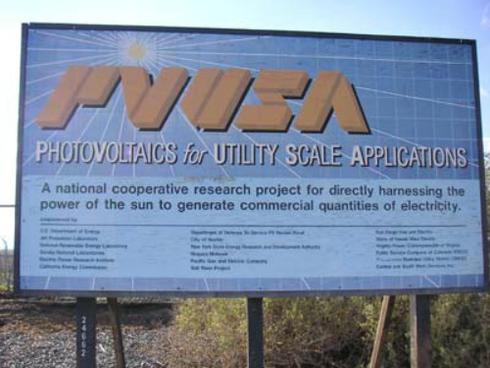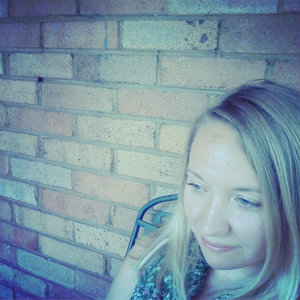Every year around this time, society suddenly becomes very concerned about the environment. Three hundred and sixty-four days out of the year, we buy, build, consume, and pollute without a second thought. But when Earth Day rolls around, everyone wants to show how much they care about the planet.
Recycling drives and tree planting intiatives are all well and good.They get people talking and thinking about their impact on the Earth, no easy feat these days. But annual programs just aren't enough.
In order to slow the negative affect of human consumption and resource depletion on our water, soil, air, and climate, we need to completely alter the way we live our lives, and fast. Big changes, like growing your own food, switching to renewble energy, and going car-free, have the most impact. But for many, they're easier said than done.
We work hard just to keep the bills paid and food on the table. We don't have money for a hybrid car or solar panels. We live in tiny apartments that make farming difficult, or mid-sized towns where public transit is non-existent. We know all the reasons why we ought to "go green" but making it happen seems impossible. Instead of feeling like we're making the planet a better place, we end up with a big case of eco-guilt.
The good news? There's an easier way, and you don't have to do it alone. Sharing is the key to living a low-impact lifestyle without a lot of up front investment. There is strength (and sanity) in numbers. Collaboration and cooperation can make it possible to slash your carbon footprint, reduce waste, and approach self-sufficiency without breaking the bank.
There are 1,001 ways to live a shareable life, but that's just as overwhelming as all the ways to go green. So we decided to start with some of the most important (and expensive) parts of our daily lives to show how shifting the focus from ownership to access can help create more sustainable communities.
Transportation
Studies show that most personal vehicles sit idle almost 23 hours out of every day. Unfortunately there are enough cars and trucks on the road to keep greenhouse gas emissions, gas prices, and insurance premiums rising 24/7. Ditching your car is an easy to slash monthly expenses and your carbon footprint, all in one fell swoop. But how will you get around?
Biking and walking are the one-size fits all alternatives. No matter where you live, commuting on foot or by bike, even just a couple trips a week, can make a big difference. In many cities, car sharing, bike sharing, and ride sharing services are on the rise. Choosing to share a vehicle instead of owning one means you can still get around with no vehicle to gather dust, require insurance, or produce emisisons. You might find that you can get almost anywhere using a combination of biking, walking, car sharing and ridesharing plus public transportation. And transit smartphone apps now make managing all the options easy.
Food
Everybody has to eat. Unfortunately, commercial agriculture is one of the leading sources of pollution and carbon emission in the world. Organic and locally produced food is better for you (and the planet) but it can be out of the question for those on a tight budget. Growing your own food solves the money problem, but many people don't have the space or time to devote to gardening.
Yard sharing is the perfect solution for those who want to garden but don't have a yard, as well as those who have a yard but don't want to garden! Shared yards, along with community gardens and CSAs allow you to share in the harvest without doing all the work. If you find yourself eating out because of the lack of fresh options, or because you don't know what to cook, potlucks, stranger dinners, recipe sharing, and other food swaps can expand your horizons and reduce dependency on processed foods.
Energy

We are an information driven, technologically-addicted society. We depend on our gadgets to organize our day, plan our trips, and locate our friends. But all of this technology demands an immense amount of energy, most of which is produced from planet-killing fossil fuels. Renewable energy and eco-friendly innovation is the answer, but both can be hard to create on our own.
Once again, pooling resources with friends and neighbors can allow us to take advantage of clean tech alternatives that might otherwise be out of reach. Solar Mosaic brings the popular crowdfunding technique to the clean tech industry by developing a way for communities to create their own renewable energy without going into debt. Community solar gardens allow residents to own a "garden plot" of solar energy, reducing grid demand and costs while preserving trees and rooftops. Taking that concept one step further let's us to imagine a completely democratic electrical grid, where the economic benefits of electricity generation are as widely dispersed as the ownership.
Work
Office buildings account for 72 percent of the energy consumed in the U.S., according to the U.S. Green Building Council. These buildings have massive heating and cooling systems, thousands of lights to counteract the cubical gloom, and dozens of bathrooms with outdated fixtures that waste water. If your job absolutely requires you to work on site, there's not a lot you can do to avoid this consumption. However, if your boss is flexible, or you're self-employed, there are sharing options that could help.
Coworking provides a shared workspace for mobile professionals who crave a supportive environment. Instead of 25 freelancers, working at home with the lights and heat on, coworking spaces allow all 25 to collaborate, socialize, and network in the same room, sharing the same light and thermostat. Many coworking spaces act as sharing hubs, allowing people to leverage the power of a larger group to create or access car, food, and technology sharing services.
If you're an entrepreneur looking to gather funding for your business or product idea, sharing solutions like crowdfunding or crowdsourcing can help you gather the social or monetary capital needed to take it to the next level.
Clothing/Media

image via blmurch/Flickr
Food might be necessary for survival, but clothing is a close second. Good luck going out to dinner or the movies without it. Not only is new clothing expensive, the manufacturing processes through which it's made are harsh on both workers and the environment. The same is true for many types of media, most of which have made obsolete by digital alternatives anyway.
This may seem like a radical concept, but the value of both new clothing and media is in the experience of using it, not the burden of owning it. Instead of wasting money to buy a new book or pair of pants, why not use an item already in existentce?
Swapping is a great way to access things that you need without buying them. Not only does swapping greatly reduce (or eliminate) purchase costs, it gives the item a second life, reducing waste and increasing joy all at the same time. It's easy to organize your own community swap around almost any type of item, including intangibles like skills, time, and experiences. If you want to access a larger community, there are a plethora of online swap communities focused on clothing, media, and just about anything else you'd care to trade.
Ready, Set, Share!
So there you have it. Five areas of your life that could be made simpler, cheaper, and greener simply by sharing. Of course, trying to do all these things at once would be overwhelming, so we encourage you to pick the one that interests you the most and investigate.
Clicking on links in this article will take you to Shareable posts that show you how to do it, or describe the experience of others who tried sharing and liked it. If you're interested in sharing something not discussed here, there's a good chance you'll find it in our new and improved How to Share Guide. And as always, feel free to share your own ideas in a comment!









